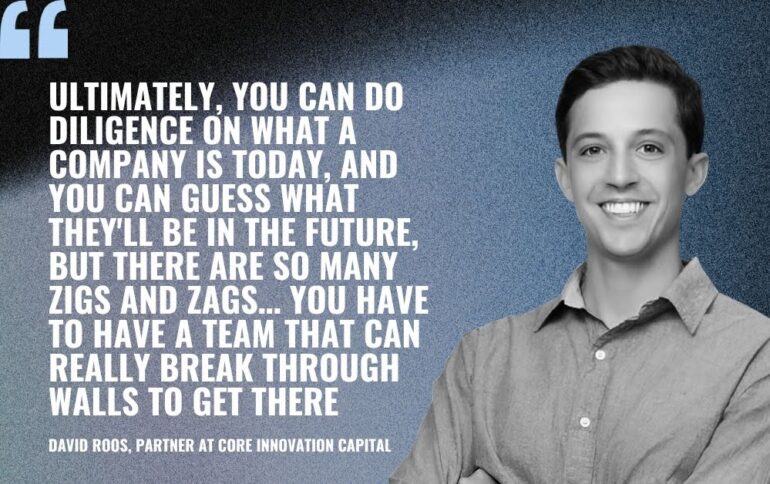No product? No problem. With a voting structure that makes Murati untouchable, Thinking Machines joins a new wave of speculative bets on founder-as-future.
There’s a new superscaler in town — maybe. In late June, Thinking Machines Lab, led by Mira Murati, the former Chief Technology Officer of OpenAI, closed on a Seed-stage fundraise that saw the up-and-coming outfit secure around $2 billion from a16z, NVIDIA, and others at a $12 billion valuation.
Thinking Machines Lab has been notably tight-lipped about its business plan. Its bare-bones landing page offers painfully few specifics. The company is “an artificial intelligence research and product company” that’s “building something transformative,” with the goal of making “AI work for [everyone’s] unique needs and goals.” Not exactly much to sink your teeth into.
To make things even more eyebrow-raising: Reporting on the fundraise suggests Thinking Machines Lab did not tell prospective investors what it was working on, and did not include information about a product or financial plans in its pitch deck. In addition to pouring nine figures into the venture, the deal included a corporate structure offering Murati a board vote equivalent to all other board votes plus one, rendering Murati unimpeachable and almost solely responsible for the billions invested in her unspecified vision.
“The new hot thing seems to be pre-plan companies,” wrote Financial Times correspondent Robin Wigglesworth with some alarm.
“We’re not even sure what stage of the cycle it is when investors are willing to fork over $2 billion to a founder with no disclosed product, financials or business strategy, and bake in zero control,” he added, noting that, according to Pitchbook, 70% of all venture dollars in North America are going into AI startups. These trends may contextualize other high-profile, big-budget moves — like Meta successfully pouring $14 billion into Scale AI as a way to acqui-hire Alexandr Wang, and unsuccessfully attempting to poach members of Murati’s team through billion-plus-dollar comp packages. With such an emphasis on founding talent, business plan and its viability be damned, might we conclude that VC diligence and discipline have returned to the WeWork era?
Looking at the firms equipped to chip into Seed rounds like Murati’s suggests some investors effectively apotheosize the entrepreneur qua entrepreneur. Outlining his optimistic vision for an AI-inflected future, Silicon Valley high priest Vinod Khosla told his portfolio companies in 2024 that “Entrepreneurs, with passion for a vision, invent the future they want.” To Khosla, the most important questions in the face of our most trenchant problems (climate change, medical quandaries, and the like) are Who will do it? and Will they let it happen? (Khosla Ventures did not respond to requests for comment.)
But looking elsewhere suggests part of the problem — in addition to billions in AI-hungry dry powder and some bubble-like characteristics — is the relative unprecedentedness of AI startups, the products they’re building, and the potential long-term outcomes of this work. In other sectors (consumer goods, banking, construction), decades of historical data can help more effectively value a startup, its vision, and its potential TAM. Things are far more up-in-the-air within the AI world, wherein far-fetched ideas and moonshot projects are treated as plausible. (One source suggested Thinking Machines Lab is working on artificial general intelligence.)
Things function differently when smaller checks are involved. According to David Roos, Partner at Core Innovation Capital, an early-stage venture firm focused on wealthtech and healthtech, capital is far from guaranteed for AI founders. “It’s always challenging to raise dollars,” Roos told Future Nexus, adding that Core puts “team above all else” when evaluating potential investments.
“Ultimately, you can do diligence on what a company is today, and you can guess what they’ll be in the future, but there are so many zigs and zags… and so you have to have a team that can really break through walls to get there,” he added. “It seems like in this AI world, there are a select few with great experience at top AI research labs that are getting funding at the foundational levels. It’s less important at the application level.”
The development of AI tools has changed how Roos evaluates leaders’ qualifications. Technical skills are now more rewarded, as leaders might use tools like Cursor to accelerate development timelines, and do more work (in conjunction with semi-automated solutions) themselves.
To Roos, the real systemic risk lies in how far AI capabilities might go — and how that might adversely affect unit economics. The proliferation of deepfakes, for instance, may force banks and other compliance-obligated institutions to revert back to in-person KYC checks.
In the eyes of Jim Curry, Co-Founder and CEO of AI-enabled workflow investor BuildGroup, successful AI ventures at the application level require expertise as well as unique data. Pure-play agentic startups may struggle to develop without high-fidelity or proprietary data, while workflow-focused outfits can use the data they generate through work to further augment automated features. If their strategy is executed well, these teams need less and less capital, Curry said, as cheap AI tools and a repository of data can get a revenue-generating flywheel spinning. (This assumes automated tools will stay cheap; precedent suggests tech- and venture-backed solutions face notable price increases over time. Even Cursor has rejiggered its pricing, with some users saying the product’s quality is taking a hit.)
“I think the operational scale is going to more than offset [any rising costs],” Curry added. “I think you’re going to be at a point… at some point, where VCs are going to be a lot less required. And I’m actually excited about that. I personally think it’s a good thing when founders of businesses can own more of it and less of it’s owned by the investors.”
Sounds like more proprietary ownership of AI ventures is coming down the pike — whether through Murati-esque means or otherwise.


